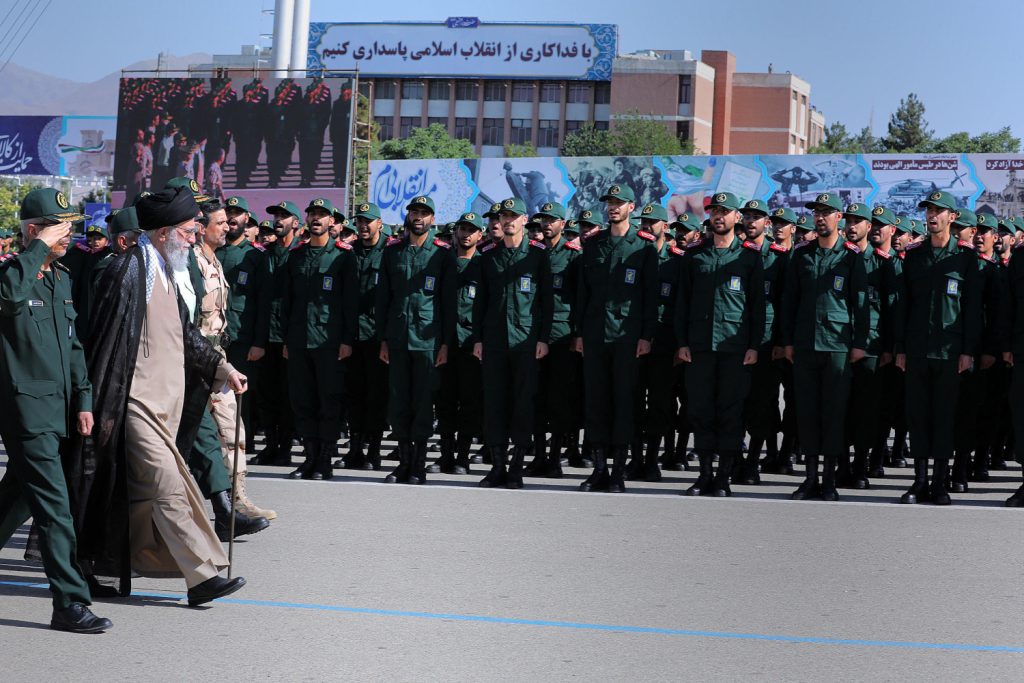IN THE MEDIA
We’re playing catch-up on our response to Iran
December 13, 2022 | Colin Rubenstein

An edited version of this article appeared in the Herald Sun – 13 December 2022
Recently, a consensus has finally been developing among Western governments about the hostile intentions and rogue behaviour of the Iranian regime.
Thanks to both the bravery of Iranian anti-regime protesters and Iran’s blatant complicity in Russian crimes in Ukraine, Western advocates of appeasement, bend-over-backwards deal-making and trade as a cure-all with respect to Iran have now mostly been silenced or sidelined.
The widespread, inspiring protests inside Iran over the regime’s long-standing trampling of the human rights of its own people – sparked initially by brave young women but later spreading to numerous other groups and classes – have been met with a ruthless, violent response before the eyes of the world.
At the same time, Iran has shamelessly allied with Russia’s Putin to supply Moscow with deadly suicide drones and ballistic missiles to bomb Ukrainian cities, in defiance of a UN embargo.
Iran also continues to funnel arms and war chests to its proxies in Lebanon, Gaza, Yemen and elsewhere, even while the local populations suffer worsening poverty. And Iran is not only blatantly sprinting toward nuclear weapons capabilities, it is now effectively blocking most International Atomic Energy Agency (IAEA) scrutiny of its nuclear facilities and flagrantly stonewalling urgent IAEA questions about man-made uranium particles found near three undeclared sites.
This is after Iran rebuffed recent generous offers to agree to return to a weakened version of the 2015 JCPOA nuclear deal.
Even policymakers who have been blindly dedicated to the idea that the always deeply flawed JCPOA is the one and only way to contain Iran’s nuclear program are now admitting a return to that agreement is likely impossible.
The US Biden Administration has recently stopped turning a blind eye to Iran’s soaring illegal oil sales, and imposed sanctions on shipping companies engaging in this illegal trade. The US has also repeatedly added sanctions on Iranian companies that manufacture and develop drones, as well as top officials in Iran’s security forces and state-run media for their role in persecuting anti-regime demonstrators. And after years of blinkered obsession with returning to the JCPOA, the Administration is now admitting this is no longer on the agenda, at least for now.
The European Union (EU), long dominated by JCPOA cheerleaders and self-interested advocates of increased trade with Iran, has similarly ramped up its own sanctions on Iran over human rights issues.
Also imposing sanctions have been numerous individual European states, including the UK, Germany and France, while Canada has become a global leader in pursuing human rights sanctions.
Australia has been late to the party, only announcing our first sanctions on some blatant human rights abusers in the Iranian regime on Friday.
This is a welcome first step, but not nearly enough. Over the last three months, there have been seven waves of sanctions announced by Canada, 5 by the US and 3 by the UK. Our allies have sanctioned 113 individuals and 17 entities linked to human rights abuses in Iran. On Friday, Australia sanctioned six individuals and two entities.
Moreover, Australia is yet to even verbally condemn Iran over its illegal weapons sales to Russia, while our allies, such as Canada, have been imposing sanctions on some of the companies and individuals making these weapons.
Virtually the whole Western world today understands the danger to global stability from a nuclear-armed, revisionist, rogue actor in the Persian Gulf. They also know that Iran is becoming ever more closely allied with even more powerful actors threatening international peace and stability – Russia and China – and that allowing Iran to flout international norms, organise aggression against its neighbours and illegally build nuclear weapons will only strengthen, embolden and empower Iran’s dangerous allies. And our allies want to assist the incredibly courageous Iranian people in their fight for basic human rights.
It is hard to see any justification in terms of Australia’s national interest for refusing to be a fully committed contributor to that Western consensus.
Meanwhile, in Israel, Prime Minister-elect Binyamin Netanyahu’s political comeback after the country’s Nov. 1 election has returned an outspoken voice against Iranian aggression to the world stage. Netanyahu has stated many times that Israel is prepared to act alone, if necessary, as a last resort, to prevent Teheran from obtaining weapons of mass destruction that regime officials openly threaten to use against Israel.
Netanyahu is known to appreciate Israel’s warm relationship with Australia – but his government is likely to be concerned, just like other friendly and allied nations will be if Australia remains a Western odd-man-out in being less than fully committed in its actions on Iran.
The reality is Australia cannot possibly prepare to cope with our worsening strategic environment without help from our allies and friends. This is yet another reason why our previous tardy stance on Iran, so out of step with our allies, was so hard to comprehend. Hopefully, the latest very welcome sanctions just announced were only the first of many such justified steps to come.





